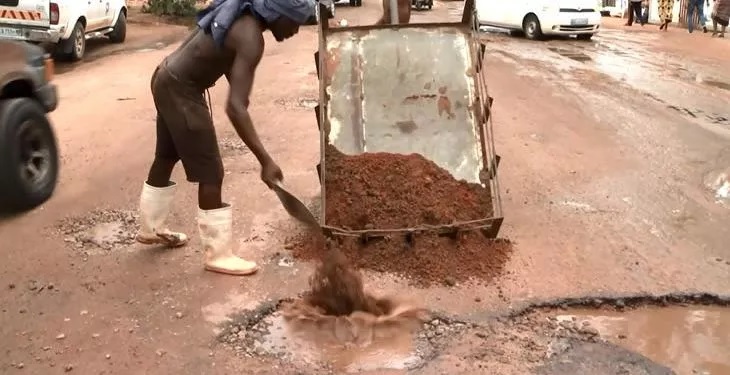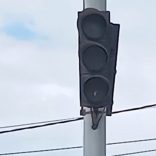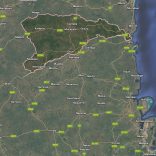South Africa and Mozambique strengthen border collaboration in Komatipoort talks - Watch
Sisyphos in Maputo: And then there were two

Photo: O Pais
When the rains come, the potholes on Avenida Julius Nyerere become more dangerous, because drivers have less visibility. But two young men – two urban entrepreneurs – are filling the potholes with earth and rubble in exchange for loose change. With a shovel and a handcart (a.k.a ‘txova’), they grab the business opportunity, as the rain pours relentlessly down on Maputo.
In the Bairro Central, close to the National Defence and Justice ministries, begins one of Mozambique’s largest and most prestigious avenues – Julius Nyerere, Maputo prime.
It’s raining. From its starting point in Bairro Central, the drive almost lets you forget the deficiencies of roads in Maputo – and Julius Nyerere itself, further on. Stopping or slowing down here only when the robots tell you, the journey proceeds, softly and smoothly.
But anyone who thinks that the tranquillity will last all the way to the end of the road will be disappointed, because such is not the reality on the ground. In fact, the urban part of the road goes up to the Xiquelene bridge, a few metres from Praça dos Combatentes.
Right there, under the bridge, driving from Maputo to Magoanine – that is, from the centre of the city to the periphery – is where the metropolis’ ills are suddenly unveiled, in the first crater full of rain water, the first of many on the suburban part of Julius Nyerere.
On this road, knowing how to drive is not enough. One must develop special skills on how to navigate the potholes, the humps and bumps, the pits. And they are getting even bigger with the rains of the last days in the Mozambican capital. Climate change or not, it’s raining still. Raining heavily.
These days, two young men aged 25 and 27, Shelton and Antonio, are adding one good thing – minimising the problem of potholes on Julius Nyerere – to another: having some money in your pocket. This became their new business, after they pulled out of selling vegetables.
So they collect rubble, fill in the potholes, and run up to drivers to collect a few coins.
Simultaneously, the rainfall undoes the work. The waters flow right back into the craters and everything is back to square one, just as in the Greek myth. Shelton and António’s shovels and ‘txova’ are kept busy in the rain.
The drivers give them what they can, and appreciate the attitude, the panache and the gesture. They say their intervention is “opportune”.
“They are helping us. So what we’re paying them is a stimulus,” one driver says, after handing a five-meticais coin to young Shelton, working shirtless.
The stimulus is fine, but one would need many more Dynamic Duo’s at other points along Avenida Julius Nyerere. In fact, there are places where whole lanes have to be closed.
There is more. The rains bringing new challenges, even to those used to dealing with potholes on a daily basis.
“The road itself was already a problem. Now, with the rain, it’s become even more difficult, because we have to look out for whether there is a pothole or not,” another driver waiting for his turn to proceed at one such point comments.
There is more. The rains bringing new challenges, even to those used to dealing with potholes on a daily basis.
“The road itself was already a problem. Now, with the rain, it’s become even more difficult, because we have to look out for whether there is a pothole or not,” another driver waiting for his turn to proceed at one such point comments.
By Afonso Chavo












Leave a Reply
Be the First to Comment!
You must be logged in to post a comment.
You must be logged in to post a comment.